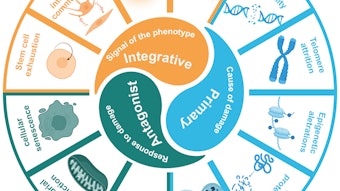
During the American Chemistry Council (ACC)’s Annual Meeting, Ashland Global Holdings Inc. was awarded for sustainability leadership thanks to its environmental protection and circularity practices.
Related: Second Nature: Sustainability as the Outgrowth of Naturals, A Commentary
The ACC judging panel reviewed and selected award winners based on a range of factors including: the level of innovation the initiative demonstrated; the scope and reach of its impact; and the extent to which it addresses priorities outlined in the ACC’s Sustainability Principles and the United Nations Sustainable Development Goals.
Ashland’s Benecel MX modified cellulose won the award for sustainably, as it addresses the growing popularity of plant-based foods and meat alternatives. The ingredient offers a firm texture to protein products that are eaten warm; such as vegetable burgers, meat substitutes and meat hybrid blends. The product’s thermally reversible gelling capability helps products to retain moisture for an enjoyable eating experience.
Additionally, the Benecel MX manufacturing site in Belgium decreased the environmental impacts of its operations through initiatives that have helped to reduce greenhouse gas (GHG) emissions and conserve water.
Previously: Certified 'True': Food Virtues in Beauty, Part I
“The manufacturing processes for Benecel requires a significant amount of steam,” said Keith Silverman, senior vice president, global operations, quality and environmental, health and safety of Ashland. “Instead of burning gas to generate steam on site and adding an environmental burden, Ashland’s solvers worked with a neighboring facility that produces a large amount of surplus steam through its waste incinerator processes to create a steam network that has resulted in a reduction of burned gas and fewer emissions to the environment.”
Overall, the project will provide a GHG reduction equivalent to the energy from 50 windmills, which helps Ashland to meet one of its 2020 environmental goals—a 10% GHG emissions reduction.
The Ashland facility also generates wastewater with high salt content, which must undergo on-site biological treatment before being released into the local river. Ashland set an agreement with an adjacent site to receive its rainwater and water drainage, and added these new water sources to its on-site rainwater collection points to help treat salted wastewater streams. The amount of water sourced this way is estimated at 64,000 cubic meters per year—equivalent to 26 Olympic-sized swimming pools.
Also related: No Eco-scuses: Packaging Can Conform with Natural Tenets
“The chemical industry plays a critical role in addressing and solving global sustainability challenges faced by society,” said Chris Jahn, president and chief executive officer of the American Chemistry Council. “ACC is proud to recognize Ashland with the 2020 Sustainability Leadership award for their work to advance solutions to feed a growing global population, while also implementing innovative manufacturing processes that embrace circular practices.”
“Sustainability provides opportunities for growth while underscoring the responsibility to change,” said Guillermo Novo, chairman and chief executive officer of Ashland. “At Ashland, our solvers rethink chemistry to innovate and solve complex challenges for customers with a conscious and proactive mindset for the planet. It is a business imperative, and the right thing to do.”
For more information, contact Ashland.










